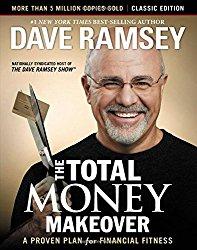When people talk about inflation, they often say things like “too much money chasing too few goods” or “too much demand and not enough supply.” That sounds nice, but what exactly does it mean? As you’ll remember in the first post in this series, What is Money, we talked about how money is an IOU for some time that you gave up in the past, doing something for someone else. You spent an hour making dinner for a roomful of people in a diner, selling things at Wal-Mart, or cleaning hotel rooms for people and now you have a voucher that you can give someone else so that they’ll spend their time doing something you want done. Why is it that if you hold onto this voucher for a few years, instead of being able to trade it for something worth the work you performed right when you get the money, you get a little less? The reason is inflation.
Get Up to $50 Off Kindle E-Readers
Shop Amazon Warehouse Deals – Deep Discounts on Open-box and Used Sports Equipment
Inflation is really a little tax imposed by governments on people who hold their currencies. Instead of having you send money into the government like they do with payroll taxes, however, the government collects this tax by just making the dollars you have in your wallet or hidden under your mattress worth a little less each year. In normal times the US Government likes to see inflation at around 2-3% per year, meaning that 2-3% of the value of those IOUs you hold onto goes away each year. They do this by printing more money than they collect in taxes and using it to buy some of the goods and services they purchase. This means that there are more IOUs out there than work that was performed, so it takes more vouchers to purchase the same amount of work. When a government really gets into trouble and can’t pay their debts, as we saw in Venezuela this last year, they may print money like crazy and inflation can skyrocket. In Venezuela, inflation was more than 800% last year. This means that you would only get back a little more than seven minutes for each hour of work you put in at the start of 2016 if you held onto cash instead of spending it right away.



And that is really the point of inflation – allowing the government to essentially collect more tax money without actually imposing taxes. When you raise taxes, people get upset and start wondering why the government is spending so much money. If instead you just borrow a bunch of money to buy things, and then you use inflation to reduce the amount of money you actually need to pay back to pay off the loans, people don’t realize what’s happening. They talk about how the price of milk is so high now and how it costs a lot to get to work, but they soon get a raise at work and forget about it. The people who pay this tax are the ones who save and have money sitting in cash or in their bank accounts, since the value of their life savings slowly decays.
Governments also like inflation because it encourages people to borrow money. People like to see a raise each year, which makes them feel wealthier and this makes them more likely to spend money and go along with tax increases, even though a lot of the raise they get is really just making up for inflation. People also see the price of their home increase over time, making them feel good and helping them to forget about how much their home mortgage payments were. Banks are wise to the effects of inflation, however, so the money consumers pay back on their loans usually includes a high enough interest rate to make up for losses due to inflation. Sometimes inflation rates will spike and surprise the banks, but usually they have spent enough time predicting likely inflation rates during the life of the loan to make sure they are charging a high enough interest rate.


Learn to master your money with these great books from Amazon.
So how big an effect is 3% inflation? Well, using the rule of 72 again, where you divide 72 by the interest rate, we see that 72/3 = 24, meaning that at 3% inflation, the value of your cash will drop in half every 24 years. Hold onto that $100 bill you got from your grandpa from age 5 to age 77 and it will only be worth $12.50 since it will have been cut in half three times. Even if you put money into a bank account, you’ll be paid about 1% while inflation is 3%, so you’ll see the value of your money cut in half every 36 years. This is why people who use bank CDs to fund their retirement find that it gets hard to pay for everything by the time they get into their eighties after twenty or thirty years of retirement.
Luckily, if you are a saver, you don’t need to sit by and watch your hard work vaporize. The secret is to use your dollars to buy things that have a relatively fixed value, or that increase in value with time. As long as their value at least stays the same, you’ll be able to trade them later for whatever amount of money equals their present value today. For example, if I were to buy a vacant lot somewhere and things stayed about the same in the area, I should be able to sell that vacant lot again in 30-40 years and get about 2-3 times what I paid for it today in dollars, meaning I should be able to buy the same amount of stuff using the money from selling the lot in 30 years as I could have today.



You could do even better, however, by buying things that grow in value with time rather than simply holding their own with inflation. Because companies tend to grow with time, become bigger, make more money, and own more things, common stocks tend to grow with inflation. Also, like home loans, corporate bonds tend to pay interest rates that are a couple of percentage points higher than inflation. Finally, because cities grow and there are more people looking for homes, real estate can grow faster than inflation in the right markets.
Here are some tips for beating inflation:
1. Don’t keep cash for anything you’re not going to buy within the next year. If you need the money in a couple of years, put it in a bank CD with the longest term you can get that matures before you’ll need the cash.
2. If you don’t need the money for several years, put the money in bonds. Buy bonds that mature in five years if you don’t need the money before then. Spread the money out to several bonds (or buy an appropriate term bond mutual fund) to reduce the risk of a single company going bankrupt and affecting your returns.
3. Put long-term investments into real estate and stocks. If you’re saving for retirement and have 30 years, you can get a return after inflation of 8-12% on your money in stocks, and 6-10%% in real estate, versus losing a couple of percentage points each year if you have the money in the bank.
Follow me on Twitter to get news about new articles and find out what I’m investing in. @SmallIvy_SI
Disclaimer: This blog is not meant to give financial planning or tax advice. It gives general information on investment strategy, picking stocks, and generally managing money to build wealth. It is not a solicitation to buy or sell stocks or any security. Financial planning advice should be sought from a certified financial planner, which the author is not. Tax advice should be sought from a CPA. All investments involve risk and the reader as urged to consider risks carefully and seek the advice of experts if needed before investing.

